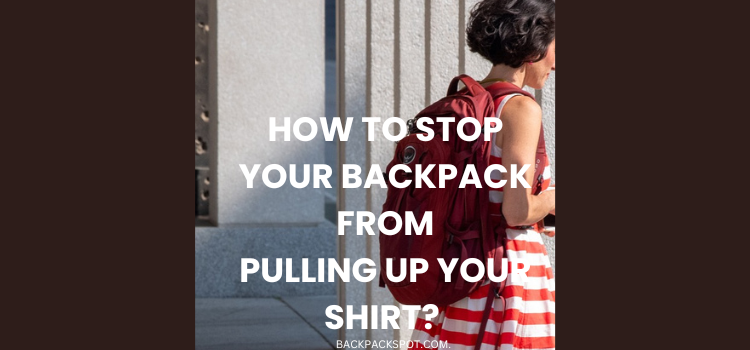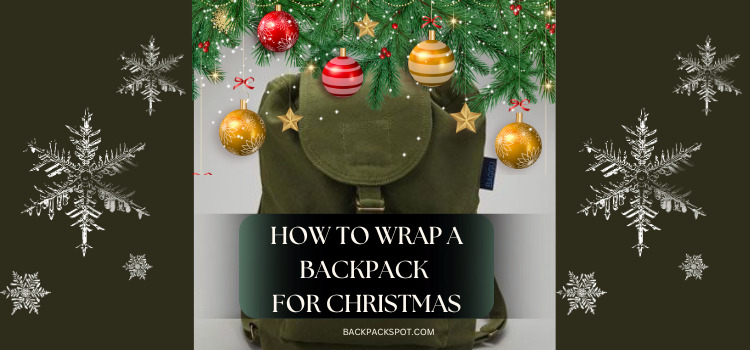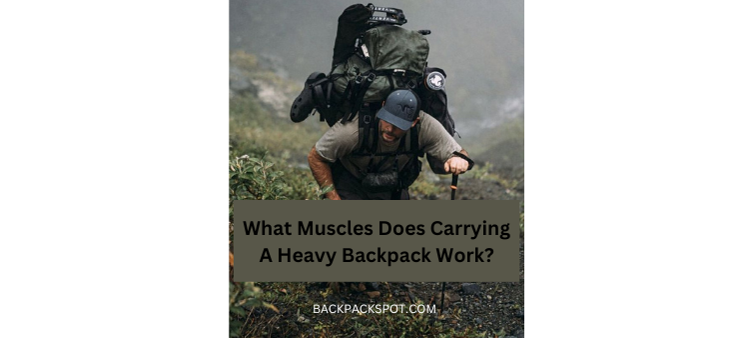10 Tips How To Find a Quality Backpack? (Ultimate Guide)
When it comes to finding the perfect backpack, it’s not just about fashion and style. A quality backpack should be your trusted companion, whether you’re a student, a traveler, a hiker, or a professional on the go. Now, you might think about how to find a quality backpack.
Here’s the answer: A quality backpack feels like nothing is being carried. Try the bag before buying. Let the bag sit on your shoulders and feel the straps and back. Don’t forget to consider padded backs and shoulder straps.
In this comprehensive guide, we will walk you through the essential factors to consider and the steps to take when picking a top-notch backpack. So, let’s get started!
Importance of a Quality Backpack
Before we delve into the nitty-gritty of choosing the ideal backpack, let’s first understand why having a quality one matters. A well-made backpack offers several benefits:
1. Durability and Longevity
Investing in a quality backpack means you won’t have to replace it frequently. Quality materials and craftsmanship ensure that your backpack will withstand wear and tear, saving you money in the long run.
2. Comfort and Ergonomics
A good backpack is designed with comfort in mind. Proper padding, adjustable straps, and ergonomic designs distribute weight evenly, reducing strain on your shoulders and back.
3. Organization and Functionality
Quality backpacks often come with a variety of pockets and compartments, making it easy to organize your belongings. This enhances functionality and helps you stay organized on the go.
Consider Your Needs
Before finding the perfect backpack, assess your specific needs. Here are some questions to ask yourself:
1. What Will You Use It For?
Are you planning to use the backpack for daily commuting, hiking, travel, or school? Different activities require different types of backpacks.
2. How Much Capacity Do You Need?
Consider what you typically carry in your backpack. Do you need a small daypack or a spacious backpack for longer trips? Assess your storage needs.
3. Are You Carrying Electronics?
If you’re carrying a laptop or other electronics, look for a backpack with dedicated padded compartments to keep your devices safe.
How To Find a Quality Backpack
Finding a perfect backpack is important, as it can make a significant difference in your comfort and convenience when carrying your belongings. Here are some tips to help you find a good backpack:
1. Consider Comfort and Fit
A quality backpack should be comfortable to wear for extended periods. Look for these comfort features:
- Padded shoulder straps: Distribute weight evenly.
- Chest and waist straps: Help stabilize heavy loads.
- Ventilated back panel: Keeps your back cool.
2. Choose the Right Size
Size matters when it comes to backpacks. A backpack that’s too small won’t fit all your essentials, while one that’s too large can be cumbersome. Here are some common sizes and their uses:
Daypack (15–30 liters)
Perfect for daily commuting, short hikes, or as a school backpack. It can carry your essentials without being bulky.
Weekend Backpack (30–50 liters)
Ideal for weekend getaways or short trips. It offers enough space for clothes and personal items.
Travel Backpack (50+ liters)
For longer trips, consider a travel backpack with ample space. Look for one with multiple compartments for better organization.
3. Materials Matter
The materials used in a backpack significantly impact its quality and durability. Here are some common materials to look for:
Nylon
Nylon is lightweight, durable, and water-resistant. It’s an excellent choice for backpacks that will see outdoor use.
Polyester
Polyester is budget-friendly and lightweight. While not as durable as nylon, it can still serve well for everyday use.
Canvas
Canvas offers a rugged and classic look. It’s a popular choice for vintage-style backpacks but may be heavier than nylon or polyester.
Leather
Leather backpacks exude style and luxury. They are durable but require more maintenance.
4. Weight Distribution
Consider the weight distribution of the backpack. Look for one with a hip belt or chest strap, especially if you’ll be carrying heavy loads. These features help distribute the weight and reduce strain on your back.
5. Features to Look For
To find the perfect backpack, consider the following features:
Comfortable Straps
Pay attention to the shoulder straps and back padding. Adjustable, padded shoulder straps distribute weight evenly and reduce strain on your shoulders. A padded back panel enhances comfort and ventilation.
Compartments and Pockets
Assess the organization’s options. Multiple compartments and pockets can help you keep your belongings organized. Some backpacks have dedicated laptop sleeves, water bottle holders, and easy-to-access pockets for small items.
Zippers and Closures
Inspect the zippers and stitching on the backpack. Quality zippers and closures ensure the security of your belongings. Ensure that zippers move smoothly. Moreover, lockable zippers provide extra security, especially when traveling.
Waterproofing
Water resistance is a valuable feature. If you plan to use your backpack in wet conditions, look for a backpack with a water-resistant or waterproof coating, or consider getting a rain cover.
Ventilation
For outdoor activities, especially in hot climates, a backpack with proper ventilation can prevent excessive sweating and discomfort.
6. Brand Reputation
Research shows that reputable backpack brands are known for their quality, such as Osprey, Berghaus, North Face, Deuter, and Patagonia. Established brands often have warranties and good customer support.
7. Read Reviews
Before making a final decision, read reviews from both experts and other consumers. They can provide valuable insights into a backpack’s performance and durability.
8. Try Before You Buy
One of the most crucial steps in finding the perfect backpack is trying it on. Visit a store, if possible, and wear the backpack with some weight to see how it feels on your back. Ensure that it’s comfortable and fits your body well.
9. Warranty
Look for a backpack with a good warranty. A solid warranty shows the manufacturer’s confidence in their product and can provide peace of mind.
10. Price vs. Quality
While it’s tempting to go for the cheapest option, remember that a quality backpack is an investment. Spending a bit more upfront can save you money in the long term, as you won’t need to replace it as often.
Conclusion
Now that you’ve learned how to find a quality backpack. It is a crucial decision that should not be taken lightly. By following these steps and considering your specific needs, you’ll be well on your way to selecting a backpack that will serve you well for years to come. Remember, it’s not just a bag; it’s an essential tool for your everyday adventures!
FAQs
Q: How do I know if my backpack is durable?
A: To determine if your backpack is durable, you can examine the seams and stitching and test all the zippers.
Q: What is the longest-lasting backpack material?
A: In terms of durability, there is no doubt that Cordura and Ballistic Nylon are the champions of the material world.
Q: How long should backpacks last?
A: As a general rule, a backpack can last for about three years at most, after which things start to break down. In general, it depends on many factors, including, first of all, the packaging quality and the amount of use you put your backpack through.
References
https://www.trawoc.com/blogs/news/10-tips-to-buy-a-quality-backpack






